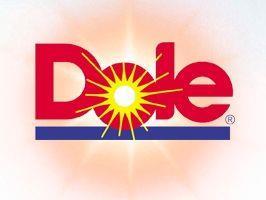
A new report by a number of non-governmental organisations into alleged human rights abuses by banana group Dole has urged the US corporation to “behave responsibly to help put an end to the spiralling violence and impunity, particularly present in the banana sector”.
The report, a review of 2006 study ‘Dole: Behind the Smoke-screen’, has been produced by a collaboration of groups, Banafair, Banana Link, Colsiba and Peuples Solidaires in association with ActionAid, and claims to expose the “broken promises” for improvements that the company has made, reports the Fresh Produce Journal (FPJ).
The study’s authors have accused Dole of refusing to meet with union representatives in several Latin American countries where it has banana operations, including Costa Rica, Peru, Guatemala and Ecuador.
However, the report does acknowledge that the company has made some progress towards improving relations with workers, particularly in Peru, while some “fragile steps forward” have been made in Ecuador.
The study, says the FPJ, also says that measures positive measures at a number of levels have been made by Dole as a result of meetings and correspondence between the group and the report’s authors.
Despite this, its authors allege that hundreds of thousands of Dole’s workers continue to live “in shocking conditions,” where “their rights, their dignity and their health are ignored”.
The report also expressed concerns about the work of Compagnie Fruitière – a company in which Dole has a 40 per cent holding – in Cameroon, claiming that witnesses in the country have reported the use of ‘harmful pesticides,’ low worker salaries and the alleged confiscation of properties.
The study’s authors criticised what they claimed was Dole’s dependence on independent producers for fruit supplies, which they alleged had “allowed the company to wash its hands of the direct social responsibility for workers on the plantations”.
In response to the allegations, Dole pointed to the positive progress that has been made during the three years since the publication of the original report.
Sylvain Cuperlier, vice-president and director of worldwide corporate social responsibility at Dole, told the FPJ that the company had discussed the 2006 claims with its local stakeholders in order to “identify the real problems and to implement corrective actions, if necessary”.
“One of the criticisms made in 2006 was that there was a lack of dialogue between Dole and the unions in some countries. It is my understanding that the new report recognises Dole has engaged in a dialogue with all trade unions,” Mr Cuperlier told the publication.
In some countries, such as Peru, he said, this dialogue had already led to successful negotiations, while in others, like Costa Rica, the discussions had “not always contributed to having both parties agree on what is a reasonable way to move forward”.
“The report shows there have been some concrete achievements – now, the campaigning organisations will continue to ask Dole and the industry to do more,” added Mr Cuperlier.
However, for the campaign groups involved in the sector, such claims had not always translated this into practical improvements.
Alistair Smith, international co-ordinator of Banana Link, told the FPJ that in some countries, such as Honduras, Dole had established “reasonably good relationships” with trade unions and was now engaging in collective bargaining.
But, in others, Mr Smith claimed there still existed “considerable resistance” from within Dole to making such commitments, arguing that “the company needs to realise that its fears are unfounded”.
“In Guatemala, the US market’s biggest single source, the company has still to meet promises it made three years ago – this is unacceptable,” he claimed.
Mr Smith argued that Dole would be in a stronger position to argue for fair prices from its customers if it had real working relationships with an organised workforce that understands the pressures of working in a highly competitive product chains.
But he told the FPJ that campaigners were confident “progressive voices” within Dole would “realise that genuine engagement is of short-term and long-term benefit”.
The framework of the new World Banana Forum – a new organisation due to be set up in December – could help to facilitate further engagement between banana industry employers and its workers, Mr Smith added.



